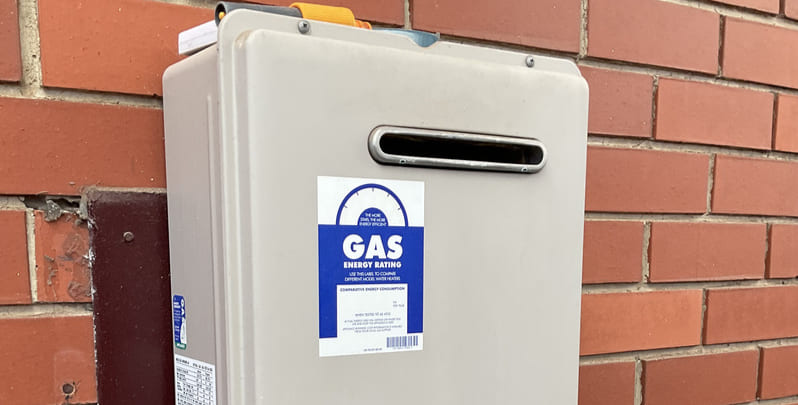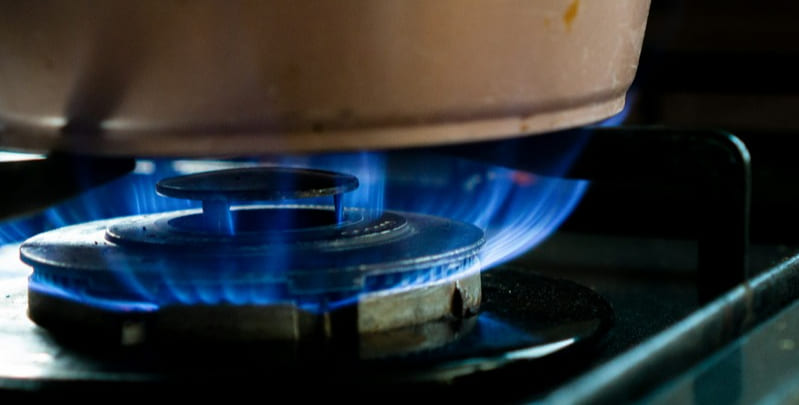5 Questions to Ask a Gas Fitter Before Hiring Them

Selecting a qualified gas fitter is vital for homeowners who need an LPG or natural gas appliance installed, serviced, or repaired.
These professionals are crucial in ensuring the safe handling of gas appliances and preventing risks such as carbon monoxide poisoning.
An experienced gas engineer will provide an estimate, complete the required work to a high standard, and offer peace of mind, proving their value and reliability in the trade. Just as you would ask a plumber about their particular plumbing services, it pays to know the right questions to ask a gas fitter as well. This helps to ensure you get the right person for the job.
Why It’s Crucial to Ask the Right Questions
Knowing the right questions to ask a gas fitter is crucial for ensuring the safe installation and maintenance of natural gas appliances. Licensed gas fitting professionals are essential for any gas project, preventing hazards such as fires or gas leaks.
In a gas plumbing emergency or even a routine installation or repair, the experience of gas fitters means that you can be confident in their skills, knowledge and expertise. More importantly, you’ll know that they get the job done right. This diligence helps in choosing a contractor who not only meets the trade standards but also provides a detailed estimate, thereby safeguarding both the property and its occupants.
1. What Are Your Qualifications and Experience in Gas Fitting?
Before you hire a gas fitter in your area, it’s essential to ask about their qualifications and experience in gas fitting. This ensures that the person you’re selecting is licensed and has completed the necessary courses and certifications to safely conduct gas work. Experienced gas engineers often have a history of successfully installing appliances and handling various gas jobs, which can significantly reduce the risk of accidents, such as fires or leaks.
Request examples of projects they’ve worked on. This can provide valuable insight into their capability and reliability. This conversation should also touch on their business history and how long they have been in the trade, as more experience often translates to more professionalism. Verify their credentials and ask for certificates to prove their qualifications, ensuring they are the right fit for the work.

2. Can You Provide References For Your Gas Plumbing Services?
In the same way that you might ask a licensed plumber for references, asking the same of a gas fitter can be highly beneficial too. It’s important to know how previous customers view their experience with the gas fitting options provided. References can give you insight into the quality of work, reliability, and customer experience. Enquire whether the gas engineer has examples of past jobs, especially those similar to the project you are hiring for.
References or testimonials can reveal the contractor’s ability to handle unexpected situations, their punctuality, and the level of satisfaction with the work. Ensure you contact these people to verify the authenticity and ask about the engineer’s professionalism and adherence to standards, particularly in managing any potential fire hazards or install issues. This feedback is crucial in assessing whether the gas fitter’s experience and work ethic align with your needs as a homeowner.
3. What Does Your Service Include?
Understanding the full scope of options is crucial when selecting a gas fitter or engineer. Ask specifically what their gas fitting work entails. Does it cover all aspects of the project, from initial assessment and installation to final testing and checks? Clarify whether the work includes post-install support and if there are any additional costs for future maintenance or repairs.
Enquire if the gas engineer provides a comprehensive estimate upfront to avoid unexpected expenses. It’s also essential to confirm that they have the necessary insurance to cover any incidents that may happen during the work. Request examples of similar projects they’ve completed and ask if they provide certificates of compliance upon project completion. This information will help ensure that the gas fitter or engineer’s services meet your project needs comprehensively.
4. What Are Your Safety Protocols and Procedures?
Safety is paramount in gas fitting, so it’s essential to question the gas fitter about their protocols and procedures. Enquire about the steps they take to ensure every job, from appliance installation to inspection, servicing and maintenance, is completed safely. Ask for specific examples of how they have managed in previous projects, especially in complex or high-risk situations.
Confirm that they have comprehensive insurance coverage to protect against any incidents. Understanding their approach will give you peace of mind and ensure they pay careful attention to detail in their work. Additionally, verify if they provide safety certificates upon completion of the work, as this indicates adherence to strict standards and regulations in the industry.
5. How Do You Handle Unexpected Issues or Complications?
When selecting a gas fitter, it’s crucial to understand how they manage unexpected issues or complications during gas installations or services. Ask for examples of complications they’ve encountered in past jobs and how they resolved them. This inquiry helps gauge their problem-solving skills and experience in dealing with unpredictable situations.
Understanding their approach to unforeseen problems will give you insight into their reliability and adaptability to the project. It’s also important to know if they provide a certificate of completion that accounts for any issues encountered and resolved, ensuring the work is certified and up to standard. Clarifying this can help set expectations and build trust, confirming that the contractor or engineer can handle the complexities that may arise with gas work effectively.
Ensuring Continuous Support and Maintenance
When selecting gas fitters, it’s imperative to discuss ongoing support and maintenance post-installation. Verify that the servicing agreement includes regular check-ups and maintenance work to ensure gas systems remain in optimal condition. In many cases, experienced contractors offer servicing packages that provide continuous support.
Ask if they issue Certificates of Compliance after each maintenance job as proof of servicing and to comply with regulations. Ensuring access to reliable support via phone or other contact means can safeguard your installation’s longevity and performance.

Costs and Financial Considerations
Discussing the costs and financial aspects is a crucial step before selecting a gas fitter. Clarify not just the initial cost of getting appliances installed but also understand the payment structure for ongoing servicing.
Ask for examples of costs from past projects to gauge what you can expect to pay and ensure there are no hidden fees. Experience often means a more efficient job, potentially saving money long-term. Ensure that the costs include obtaining necessary certificates, which prove compliance and quality of the installation or services performed.
Securing a Competent Service from Natural Gas Engineers
Selecting the right gas fitter with the right level of experience means you’re ensuring safety, comfort, efficiency, and reliability in gas-related jobs. By asking detailed questions about qualifications, experience, problem-solving abilities, and financial considerations, homeowners can make an informed decision.
Please note: This information is provided for advice purposes only. Regulations differ from state to state, so please consult your local authorities or an industry professional before proceeding with any work. See our Terms & Conditions here.